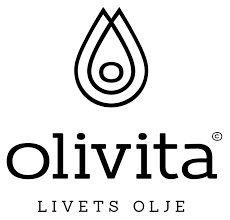Oxylipins and their role in atherosclerosis
Oxylipins are a broad and diverse class of bioactive lipids and play an important role in triggering an acute inflammatory programme and subsequently in resolving it as a first step to successful resolution and repair of tissue damage. Some oxylipins have a predominant pro-inflammatory activity, like arachidonic acid (ARA) derived oxylipins, whereas the fish oil fatty acids eicosapentenoic acid (EPA) and dodecosahexenoic acid (DHA) derived oxylipins possess anti-inflammatory properties.
The profile of oxidized poly-unsaturated fatty acid derivatives within a biological sample is called the oxylipin metabolome. Little is known about the contribution of the oxylipin metabolome in the development of chronic inflammatory diseases, such as non-alcoholic steatohepatitis (NASH) and atherosclerosis. In the proposed study the role of the metabolome of pro-and anti-inflammatory oxylipins in the development of atherosclerosis was explored.
TNO has developed a mouse model, the APOE*3Leiden mouse (E3L), in which the development of NASH and atherosclerosis, both chronic inflammatory diseases, as two clinical read-outs can be investigated in the same study when the mouse is fed a high fat/high cholesterol containing diet (e.g. Morrison et al. PloS One 2015; Zimmer et al Hepatol Comm 2017). In a previously performed study, interventions with nutritional oils from Olivita (containing the fish oil fatty acids EPA and DHA and anti-oxidants from virgin olive oil) were performed in E3L mice. In this study sponsored by Olivita, the effect of two nutritional oils on plasma inflammation markers and the development of atherosclerosis were evaluated and the oils were found to have a beneficial effect on atherosclerosis development. This study therefore offered the unique opportunity to study the oxylipin metabolome in relation to the development of atherosclerosis without the necessity of using additional mice, simply via an extension of the performed study.
Results
In short summary, both Olivita oils tested in the study had a mild effect on NASH: the oils mildly decreased hepatic steatosis, but did not affect hepatic inflammation or hepatic fibrosis. Both oils significantly decreased the progression of atherosclerosis development. They were able to measure the oxylipin metabolome and demonstrated that both Olivita oils had an effect on plasma oxylipins and resulted in a more anti-inflammatory profile. Since the preventive effects of the oils on atherosclerosis development could only be partly attributed to their lipid lowering properties, the oxylipin measurements provide more insight in the underlying mechanism and suggest a potential anti-inflammatory role for the oils. Although the anti-inflammatory effects of the oils did not result in reduced inflammation in the liver, they may contribute as an alternative underlying mechanism explaining the large reducing effects of the oils on the atherosclerosis development.


